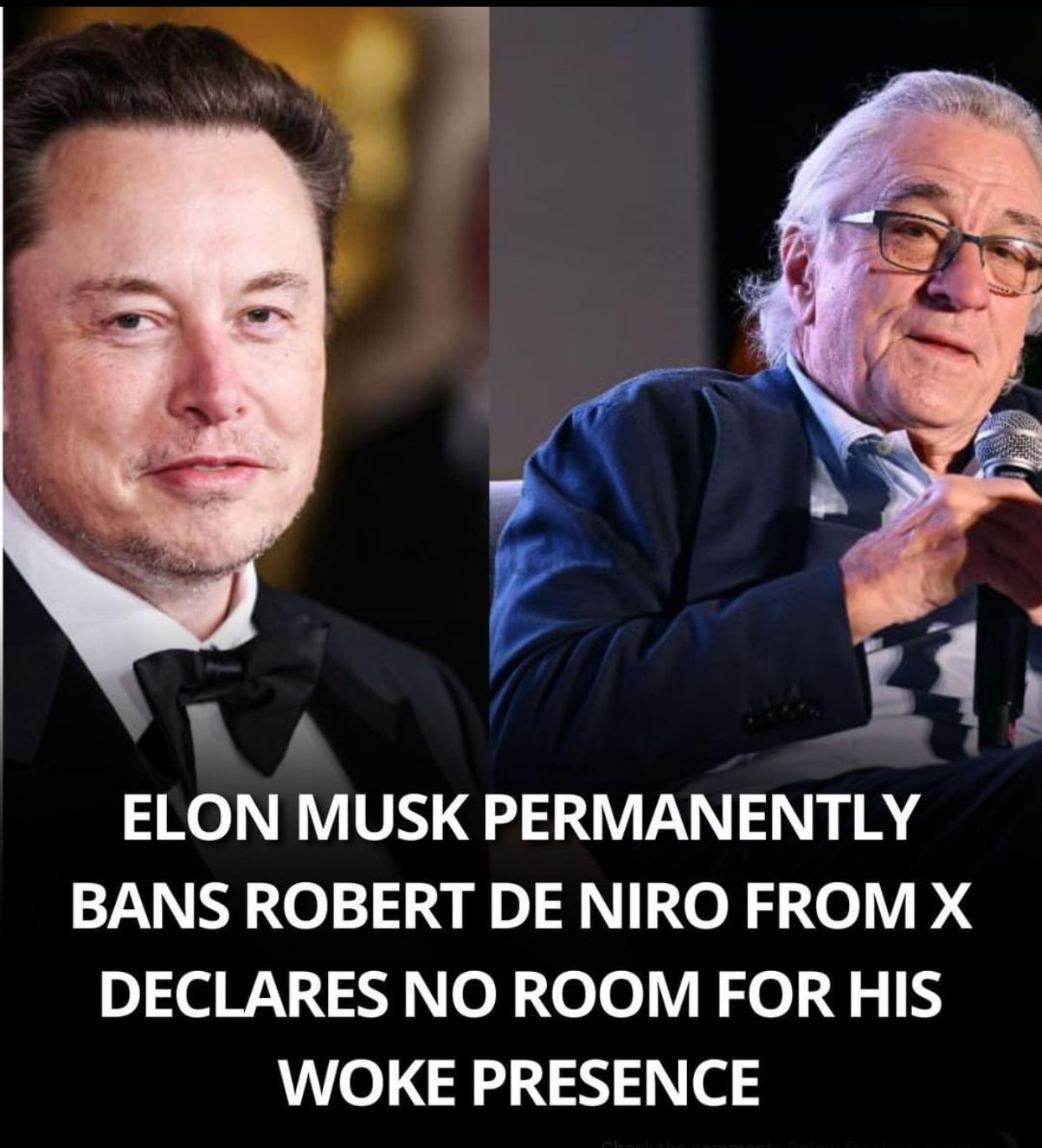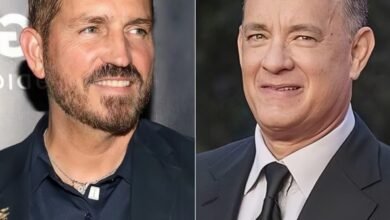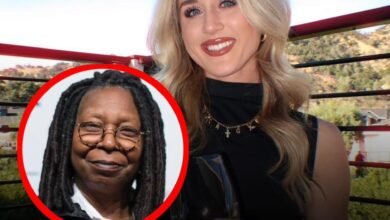Elon Musk Permanently Bans Robert De Niro from X: Declares No Room for “Woke” Presence

In a surprising move that has sent ripples across social media, billionaire Elon Musk has reportedly banned famed Hollywood actor Robert De Niro from his platform, X (formerly known as Twitter). The ban has sparked debates on free speech, censorship, and the polarizing intersection of politics and celebrity culture in America today. Known for his outspoken criticism of right-leaning figures and his sharp political commentary, De Niro’s sudden removal from X has led many to speculate about the reasons behind Musk’s decision.
Musk and the “Woke” Debate
Elon Musk has long been vocal about his disdain for what he describes as “woke” culture, criticizing its influence on everything from education to corporate policies. Since his acquisition of X, Musk has turned the platform into a space that prioritizes what he calls “free speech absolutism.” The banning of a high-profile celebrity like Robert De Niro, however, has raised eyebrows, with some wondering if Musk’s interpretation of “free speech” is more selective than initially believed.
By banning De Niro, Musk has sent a clear message to the Hollywood establishment and to vocal critics of his political views. Musk, who once described himself as “politically moderate,” has grown increasingly frustrated with left-leaning ideologies, which he perceives as imposing a rigid moral code on society. For Musk, De Niro’s outspoken views, which often align with “woke” perspectives, seemed to cross a line.
De Niro: An Outspoken Hollywood Icon
Robert De Niro is a household name, not only for his iconic performances in films like Taxi Driver and The Godfather Part II, but also for his pointed political views. In recent years, De Niro has become more vocal about his disdain for certain political figures and ideologies, often expressing frustration with conservative figures and policies. Known for his fiery speeches and unapologetic language, De Niro has repeatedly used his platform to call out what he sees as dangerous shifts in American politics.
While De Niro’s views resonate with many, they clash directly with Musk’s vision for X. Musk’s goal of creating an online town square for open debate seems, at least in this instance, to exclude voices that align with certain political values. For Musk, De Niro’s brand of outspoken “woke” rhetoric could represent a challenge to his vision for X, which may explain the decision to permanently ban him from the platform.
The Power Struggle Over Social Media
The ban also highlights a broader struggle over who controls the narrative on social media. Since acquiring X, Musk has made sweeping changes to the platform, from reinstating previously banned accounts to implementing a controversial paid verification system. In Musk’s view, social media should be a place for unfiltered discourse, but his removal of De Niro hints at the selective nature of this philosophy.
This action brings into question Musk’s own commitment to free speech. De Niro’s ban raises a critical issue: Does Musk’s version of free speech actually welcome diverse viewpoints, or is it a curated space that serves his vision? For some, the decision to silence De Niro, a Hollywood figure with a strong political following, underscores Musk’s growing influence over what conversations are permissible on his platform.
Polarizing Reactions to the Ban
Reactions to De Niro’s ban have been predictably polarized. Supporters of Musk have lauded the decision, viewing it as a necessary step to prevent “woke” culture from dominating X. For these users, De Niro’s criticism of Musk’s policies and support for progressive causes represents a threat to the platform’s intended environment for open dialogue. Many of Musk’s followers are celebrating the move as an attempt to create a “safe” space for free thinkers who don’t align with Hollywood’s political inclinations.
On the other hand, De Niro’s supporters and those sympathetic to his views see the ban as a dangerous sign of censorship. For them, Musk’s choice to ban a prominent celebrity like De Niro indicates that “free speech” on X is conditional. By silencing one of Hollywood’s most influential voices, Musk has prompted fears that any dissenting opinion could be erased from the platform. Critics argue that, instead of fostering open discussion, Musk’s X risks becoming an echo chamber for specific political ideologies.
Free Speech vs. Platform Control
The De Niro ban has reignited the debate on whether social media platforms should have the power to censor content based on ideological grounds. Musk’s actions challenge the public’s perception of what free speech actually entails and who gets to control the narrative. Unlike other social media giants, Musk has positioned X as a place where people can speak freely, regardless of how controversial their views may be. Yet, his treatment of De Niro calls into question whether this principle is applied consistently.
If free speech is genuinely a priority, some argue that Musk’s decision contradicts his own principles. De Niro’s ban reinforces concerns that Musk’s platform is becoming increasingly partisan, which could ultimately drive away users who value diversity of thought. This incident is more than a Hollywood versus Silicon Valley battle—it’s a broader reflection of America’s current cultural and political divides.
What’s Next for X and De Niro?
While it’s unclear if De Niro plans to challenge the ban, his absence from X will be felt by followers who appreciated his unfiltered takes on current affairs. For Musk, this move may prove to be part of a larger strategy to reshape X as a platform that resists mainstream cultural pressures. However, as more voices are silenced, Musk could face backlash from both users and advertisers who view such bans as a departure from the platform’s stated mission.
Ultimately, Elon Musk’s ban of Robert De Niro is more than just a celebrity’s removal from social media; it’s a potent reminder of the powerful role tech giants play in controlling speech. By excluding one of Hollywood’s most outspoken actors, Musk is setting a new precedent for what speech is acceptable on X. Whether this approach will strengthen or weaken X’s reputation remains to be seen, but one thing is certain: Musk’s decision will continue to fuel debates about free speech, censorship, and the role of social media in shaping public discourse.




